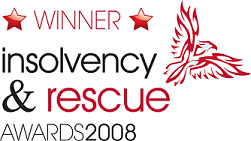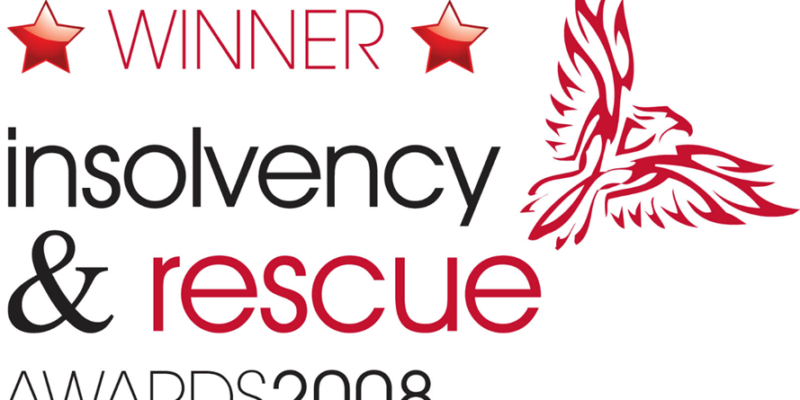- @Elle_CM Natalie's raid looked like it was filmed with a strobe light. Lame CGI in reply to Elle_CM #
- I want to get a toto portable bidet and a roomba. Combine them and I'll have outsourced some of the least tasteful parts of my day. #
- RT @freefrombroke: RT @moneybeagle: New Blog Post: Money Hacks Carnival #115 http://goo.gl/fb/AqhWf #
- TED.com: The neurons that shaped civilization. http://su.pr/2Qv4Ay #
- Last night, fell in the driveway: twisted ankle and skinned knee. Today, fell down the stairs: bruise makes sitting hurt. Bad morning. #
- RT @FrugalDad: And to moms, please be more selective about the creeps you let around your child. Takes a special guy to be a dad to another' #
- First Rule of Blogging: Don't let real life get in the way. Epic fail 2 Fridays in a row. But the garage sale is going well. #
Getting Out of Bed

- Image by Wha’ppen via Flickr
Why do you get out of bed in the morning? Is it so you can exercise the privilege of spending 8 hours in a cubicle?
I didn’t think so.
In Okinawa, it’s call the ikigai. In Costa Rica, it’s the plan de vida. It’s your sense of purpose–the reason you get out of bed in the morning. In these cultures, having a strong ikigai can be directly correlated to a statistically extreme lifespan*. All around the world, the plan de vida is the single factor most likely to cause someone to feel they have lived a fulfilled life.
Do you know your ikigai?
For some people, their plan de vida is to successfully raise their children, then their grandchildren. For others, it is charity. Some folks are serial entrepreneurs, always looking for the next deal, the next business. For still others, it is a collection or an urge to travel. There are even some whose sole reason for getting out of bed(other than potty breaks) is work.
The last category is most common with teachers, soldiers, and police. The problem with wrapping so much of your identity up in your profession is retirement. What do you do when your ikigai–your reason to wake up–goes away? In Okinawa, teachers and police tend to have very short retirements because they lose their reason to for living.
What is your plan de vida, your passion? What drives you to keep going? Do you live to write, or to raise your children? Do you <shudder> live solely for someone else’s happiness? When you find it, it will resonate as “this is you”. Finding it is a deep soul-searching, not a light-hearted explanation or a new fad.
Your reasons can, and should, change over time. You can’t live for raising your children years after they have grown up and moved away. Finding this one factor in your life can be the thing that leaves you on your deathbed looking back with a smile instead of regret.
What is your plan de vida?
* From The Blue Zones: Lessons for Living Longer From the People Who’ve Lived the Longest
You’re not alone: Help with Bankruptcy & Debt
 Frequently regarded as an indication of personal failure, bankruptcy is still today widely considered a highly sensitive topic. Many will even feel uneasy speaking about their debt problems with close relatives and friends. If you, too, are facing serious debt issues and are in need of help, rest assured you are not the only one afraid of sliding into bankruptcy. In fact, thousands of households in the UK are threateningly close to insolvency and most are experiencing the exact same feelings of shame and despair. This perfectly understandable reaction has, meanwhile, unfortunately overshadowed the fact that there are hands-on practical steps especially designed to help you resolve your debt situation.
Frequently regarded as an indication of personal failure, bankruptcy is still today widely considered a highly sensitive topic. Many will even feel uneasy speaking about their debt problems with close relatives and friends. If you, too, are facing serious debt issues and are in need of help, rest assured you are not the only one afraid of sliding into bankruptcy. In fact, thousands of households in the UK are threateningly close to insolvency and most are experiencing the exact same feelings of shame and despair. This perfectly understandable reaction has, meanwhile, unfortunately overshadowed the fact that there are hands-on practical steps especially designed to help you resolve your debt situation.
There is a good reason why addressing the issue of bankruptcy has an urgent ring to it. Recent statistics indicate a steady rise of individual company insolvencies in the UK, particularly since the 1990s. According to the British Insolvency Service, the rate of bankruptcy on an individual level has risen from a total of 24,441 in 1997 to staggering 106,645 in 2007 in England and Wales. Alarmingly, the peak doesn’t seem to have been reached yet. As respected online-service ‘This is Money’ reports, ‘record numbers of people were declared insolvent in England and Wales’ in 2010, further noting that ‘an all-time high of 135,089 people were declared insolvent in 2010—0.7% up on the total for 2009.’ As you can gather from these numbers, you are certainly not alone with your debt problems: Around 140,000 adults are facing bankruptcy as a direct consequence of mishandling their debt issues, which translates to 385 new cases per day. It has already been pointed out that ‘the number of victims will be enough to fill both the London 2012 Olympic stadium and the Emirates Stadium.’
So, if you’re facing bankruptcy, there’s no need to feel ashamed. By taking an active stance and addressing your debt issues, you may even be able to avert insolvency altogether. With years of experience and several distinctions to our credit, the Debt Advisory Line have established themselves as leading experts in the field of debt management. We’ve already helped thousands of individuals and households who thought bankruptcy was their only option. Settling debt issues is our forte – and you shouldn’t settle with anything less.
This post brought to you by Debt Advisory Line.
Filing Bankruptcy: Pride or Shame?
I’m a big fan of personal responsibility. If you’ve promised to do something, you should do it. With that said, it seems odd to some people that I don’t have an ethical problem with bankruptcy. For some people, it is the only option after a long series of problems.
Don’t get me wrong, it should be a shameful decision. Reneging on your word should never be a source of pride. It should be a difficult decision to make. A couple of years ago, I came very close to making that decision myself.
It should not be a reason to celebrate and it should absolutely not be a reason to behave irresponsibly. Some people don’t see a need to take care of their responsibilities because, when it gets bad, they’ll be able to file bankruptcy and make the creditors go away. They are abusing a safety net. That abuse hurts everyone. Credit card companies have to charge higher interest rates so the paying customers can cover the risk of those who default or file bankruptcy.
There is one prominent local bankruptcy attorney who files every 10 years, and has filed consistently for decades. He runs a thriving practice, so it’s not a matter of poor choices, it’s a matter of deliberately living beyond his means and screwing his creditors. He’s one of the slime-balls that give lawyers a bad name. He is one of the many who abuse a lifeline designed to save people from a life of destitution they didn’t ask for, and he does it to finance his extravagant lifestyle.
If you have found yourself buried in a debt you didn’t plan for, if life threw you a curve-ball that you are entirely unable to deal with, if you have to file bankruptcy, it’s okay. Really. When you go in front of the judge, have the decency not to enjoy it, and try to learn from the experience.
Money-Saving Tip: Put Your Groceries Away
Last night, we went grocery shopping. I found a beautiful pork roast, just begging to come home with me. It could spend all day Sunday in the smoker. Rub some brown sugar and garlic on the outside, maybe use a mix of maple and cherry wood chips to turn my pork butt into breakfast food. Picture this: a beautiful chunk of slow-cooked pork butt, covered in a candied crust, falling apart at the lightest touch, and tasting faintly of maple syrup.
It was love.
This morning, I woke up, walked into the kitchen to make some breakfast, and saw that beautiful butt sitting on the counter. Room temperature meat, ruined by my negligence. $15 in the trash.
We got back late last night, and apparently set this wonderful piece of future-food down with the non-refrigerated items were were planning to put away later. We said good-bye to the sitter, chased the kids to bed, picked up the house a bit, and forgot about my new love.
I’m sad.
Here’s my advice: When you get home from grocery shopping, immediately put all of the groceries away. Let the kids juggle knives for a bit, if you have to, but get the food put away. If that’s not going to work, at least take it all out of the shopping bags so you can check your work.
There are starving kids in Iowa. Don’t let potential candied pork roast go to waste.
Make Extra Money, Part 5: Domains and Hosting
In this installment of the Make Extra Money series, I’m going to show you how to pick a domain and a host.
If you remember from the last installment, I’ve decided to promote The Master Wedding Planning Guide. Since then, I have bought the product and read enough to decide that’s it worth promoting. That is the secret to ethical internet product. Never promote a crap product. Now, when I bought the Guide, I used my own affiliate link, so the $37 product will have cost me about $13, once the commission check comes through. You can’t do that just to get a discount because Clickbank has measures in place to ensure that you are actually selling products.
Domain Name
The first thing we need is a domain name.
You can skip this if you want to host on blogger, but I wouldn’t do that, unless $10 is a major financial hardship. I dislike the idea of leaving everything in Google’s hands. Even if you use blogger for hosting(discussed later), pop for the domain name. That way, if you change your mind about hosting, you can move without losing everything.
Where should you go for your domain name? I use NameCheap and GoDaddy. I try to divide my domain names across each of the providers so all of my sites don’t look identical to Google. I may be paranoid, but it works for me.
Before you order, hit Google for a coupon code. Search for “namecheap coupon” or “godaddy coupon” and save some money. GoDaddy is offering $7.49 domains.
How do you pick a domain name?
I try to pick something that matches the product name, or the product’s site. In this case, the product’s site is http://www.masterweddingplanning.com and http://www.masterweddingplanning.net was available, so I grabbed it. I would have been happy with .com, .net, or .org. I won’t touch a .info domain. They are generally cheap, but they cost more to renew and people assume they are spam sites.
If the exact match domain isn’t available, I look for exact matches for the product. If that’s not available, I stick other words at the end that would be attractive to people looking to buy a product.
Acceptable domains would include:
- http://www.masterweddingplanning.org
- http://www.masterweddingplanningreview.com
- http://www.masterweddingplanningguide.net
- http://www.masterweddingplanningreviewed.org
Or nearly anything along those lines. Other good words to attach would be “revealed”, “exposed”, or something similar. Just put yourself in the shoes of a buyer. Would the domain name look like something that could help you decide whether or not to buy a product?
Hosting
Your host is where your website lives. Without a host, you can’t have a website.
When it comes to picking a host, you have some choices to make.
First, do you want to go free or paid? Free sounds great, and if money is tight, it’s not a bad choice, but it does limit your options.
If you’re going free, you’re going with Google’s Blogger. WordPress.com’s hosting eliminates your advertising options, as does almost every other free host. I do know of a couple of free WordPress hosts that will let you run ads and advertising campaigns, but the performance is horrible.
Another problem with using Google is that they can decide your site violates their Terms of Service and shut it down. It shouldn’t happen, but it’s not unheard of with affiliate marketing sites. If you go this route, plan to move to paid hosting when you start making money.
That leaves us with paid hosting.
There are a ton of hosts out there, but only three I have personal experience with.
I won’t use GoDaddy for hosting. I’ve never been happy with their technical support.
I have most of my domains on HostGator (c0upon code: HOSTINGBUDDY). I’m happy with them. Performance is good and the customer service is excellent. Their hosting packages start at $3.96 per month.
I also have a hosting account at HostTheName. I got that because, using coupon code “STARTUPWARRIOR”, hosting prices get down to $1 per month. At $36 for 3 years, I couldn’t turn it down. Initially performance was rocky, but they’ve upgraded and it’s good, now.
Once you’ve created your hosting account, you’ll need to go back to your domain name registrar and set the name servers. At NameCheap, after you log in, you’ll go to Domains > Manage Domains and click on the domain name. From there, click on “Domain Name Server Setup” on the left of the screen and enter the custom name server information listed on your hosting account.
When that’s done, go to your hosting account and add the domain. If you’re creating a new hosting account, this will be your main domain and the hosting company will ask you for the information during setup. If you’re adding this to an existing hosting account, log in, look for “Addon Domains” and follow the prompts.
At this point, you’ve chosen a product to promote and keywords/search terms to go with it. You’ve chosen and registered a domain name and you’ve set up a hosting account to hold your website. Next time, I’ll walk through setting up a WordPress site to make some money.
Any questions?






